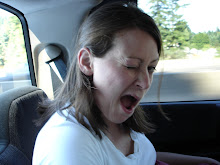
Ever since I finished reading The Poisonwood Bible last week, I can't stop feeling guilty for being American. All that beautiful prose and heart-slaying imagery has got me in a rut.
Turns out I bought the book almost ten years ago. I found the original reciept, keeping my place on page 36, with the purchase date of January 12, 2000. How do I know it was me that bought the book and not my mom (who, let's face it, still bought most things for me in the first year of the new millenium, regardless of the fact that I was 20)? Because the receipt was for one single item purchased from Costco. A paperback copy of The Poisonwood Bible. And what mother, let me ask you, goes to Costco and leaves with only one book? Huh? No mother, that's who.
And what, did I have better things to do that required me to put the book down after a meager 36 pages and not get back to it for 10 YEARS? Apparently. Maybe I was turned off by all the motherhood and whatnot. It's true that this book pricked me in a place that didn't exist ten years ago. Becoming a mother has changed me, you know. Given me emotions I did not previously have. Like the exasperation when my child refuses to do something I know is best for him (currently, that thing is pooping on the toilet. JUST DO IT ALREADY!). Or the pain I feel when my child is sick or hurting. Those are tough emotions to tap into when you don't have them. Not that you can't empathize with another person's pain unless you have children, but still.
TPB spans the lives of Orleanna Price and her four daughters. The Price girls travel to the Congo as children and leave (or don't) as much more. Their father is a Baptist preacher from Georgia on a mission to save the Dark Continent. At the expense of, well, anything really.
My favorite character in this story goes by the name of Brother Fowles. He is a former missionary who was kicked out of the Missionary League for too much "consorting with the natives". In other words, he fell in love with and married a local. He is only ever referred to for most of the story as the guy who "messed things up around here" and it is a well-known fact that Reverend Price is spending most of his time cleaning up the messes of Brother Fowles (which include a swearing and blaspheming parrot). Then one day Brother Fowles shows up in the village, having come along the river with his wife to deliver medication, food and vaccinations to people they pass by. Brother Fowles's perspective on "doing God's work" in the Congo stands out in stark contrast to Reverend Price's--whose primary goal is to dunk as many African children into the river as possible, a thought that terrifies the Africans on account of the many crocodile-related deaths that occur each year. It is Brother Fowles, I think, that changes the Price girls' feelings about Africa.
Needless to say, this book moved me.

0 comments:
Post a Comment